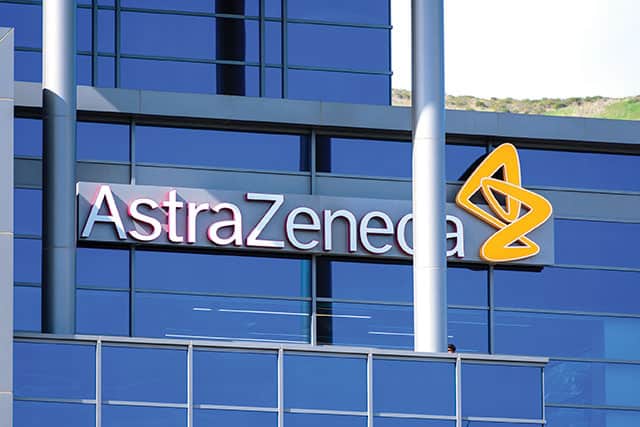
Since its first approval in 2017, more than 100,000 patients have been treated with AstraZeneca’s monoclonal antibody Imfinzi (durvalumab), mostly in non-small cell lung cancer.
However, new data from the ongoing HIMALAYA phase 3 trial is offering hope to patients with the most common form of liver cancer, hepatocellular carcinoma (HCC), where surgery cannot remove the entire tumour.
HIMLAYA used a novel dose and schedule that saw patients receive a single ‘priming’ dose of AstraZeneca’s experimental human monoclonal antibody, tremelimumab, then Imfinzi every four weeks. Tremelimumab blocks the activity of the cytotoxic T-lymphocyte-associated protein 4 (CTLA-4), priming the immune response to cancer and fostering cancer cell death.
Using this STRIDE – Single Tremelimumab Regular Interval Durvalumab – regimen, the trial demonstrated a statistically significant and clinically meaningful overall survival benefit versus sorafenib.
HCC accounts for 75% of all primary liver cancers and is the third leading cause of cancer death worldwide, with approximately 900,000 people diagnosed each year. Currently, only 7% of patients with advanced disease survive five years.
“This is very exciting news for our patients,” said principal investigator Dr Ghassan Abou-Alfa, attending physician at Memorial Sloan Kettering Cancer Center. “HIMALAYA is the first phase 3 trial to add a novel single priming dose of an anti-CTLA4 antibody to another checkpoint inhibitor, durvalumab. This serves to boost the patient’s own immune system against their liver cancer, aiming to maximise long-term survival with minimal side effects.”
The driving force behind this programme is the fact that most patients with HCC also have cirrhosis, primarily caused by hepatitis – the inflammation associated with chronic liver disease causes immunosuppression and can lead to the development of HCC.
“The unique immune environment of liver cancer provides clear rationale for researching medicines that harness the power of the immune system to treat HCC,” said AstraZeneca. “A critical unmet need exists for patients with HCC who face limited treatment options. More than half of patients are diagnosed at advanced stages of the disease, often when symptoms first appear.”
Imfinzi is already used to treat unresectable, stage 3 non-small cell lung cancer (NSCLC) and extensive-stage small cell lung cancer (ES-SCLC) as well as advanced bladder cancer. Last month, AstraZeneca released data from its POSEIDON trial showing that adding Imfinzi and tremelimumab to chemotherapy improves both progression-free and overall survival in patients with metastatic, nonsquamous NSCLC.
The company has a broad development programme for Imfinzi plus tremelimumab in patients with NSCLC, SCLC, bladder cancer and liver cancer. Imfinzi is being tested as a single treatment and in combination with other anti-cancer treatments for a wide range of cancers, including lung, bladder, liver, gastrointestinal, cervical and ovarian cancers, as well as other solid tumours.




